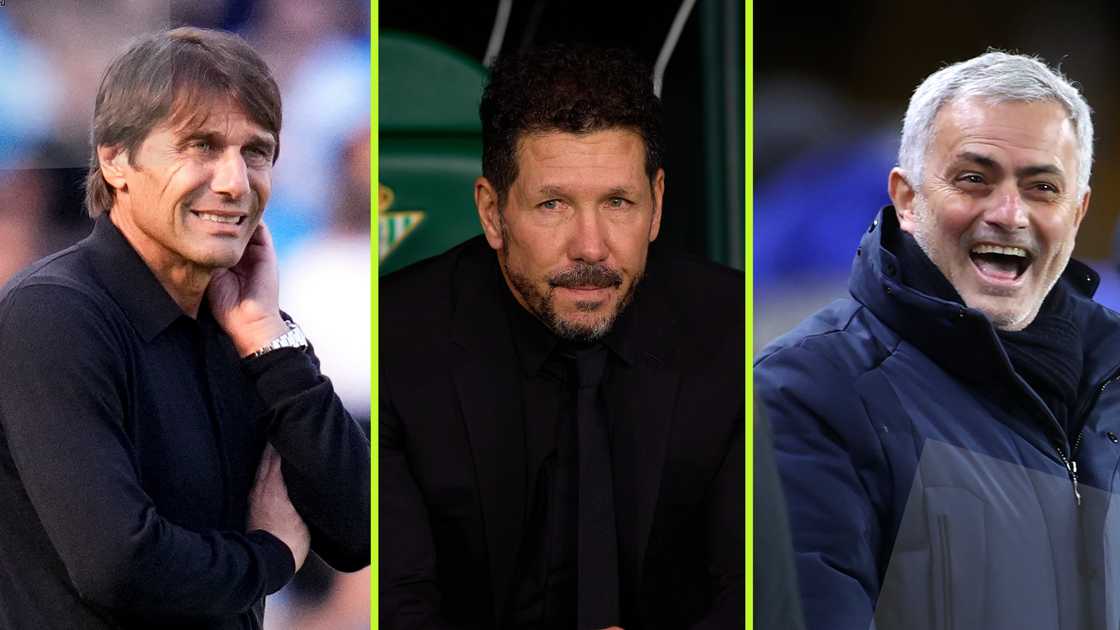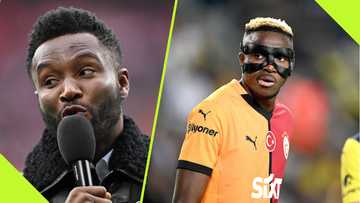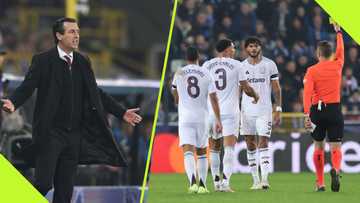Ranking the 6 best Defensive-Minded Managers in Football History
- Modern managers are often expected to play an attacking style, but defensive tactics have also proven effective
- Defensive-minded managers like Fabio Capello, and Antonio Conte have found success with their tactical approaches
- YEN.com.gh looks at six of the most successful defensive-minded managers in football history
PAY ATTENTION: NOW You can COMMENT on our articles on the YEN website! Learn how to get started.
Modern football managers face immense pressure to deliver an exciting, attacking brand of football that excites fans.
High pressing, ball possession, and building play from the back are hallmarks of this approach, epitomizing the modern style.

Source: Getty Images
However, despite the popularity of this philosophy, several managers have stuck to traditional, defensive styles that prioritize structure and minimize opponents' chances by setting up compact lines.
While this approach can stifle offensive creativity, it has proven remarkably successful over the years, especially for managers like Jose Mourinho and Diego Simeone, who have made a career out of defensive resilience.
YEN.com.gh looks at six of the most successful defensive-minded managers in football history.
1. Jose Mourinho
Known as "The Special One," Jose Mourinho has redefined what it means to be a defensive manager. His approach, often described as "parking the bus," focuses on controlling games without needing much possession.
Mourinho believes that matches can be dictated even without the ball, prioritizing a well-organized defence that frustrates opponents.
His first spell at Chelsea saw the team concede just 15 goals in one season—a record that remains unmatched in the Premier League.
Though often criticized for his style, Mourinho is the only manager to have won all three current UEFA club competitions, securing his legacy as one of the sport’s best.
2. Diego Simeone
Diego Simeone began his coaching journey in Argentina but found his big break in 2011 when he joined Atletico Madrid.
At Atletico, Simeone developed a signature style: a low defensive block coupled with counter-attacks and set pieces.
His emphasis on defensive organization transformed Atletico into one of Spain’s most formidable teams, disrupting the longstanding dominance of Real Madrid and Barcelona.
3. Helenio Herrera
In the 1960s, Helenio Herrera revolutionized defensive football with his "catenaccio" system at Inter Milan.
This strategy featured a robust backline with an additional sweeper, enabling his team to shut down attacks while remaining poised to counter quickly.
Herrera's Inter Milan won four La Liga titles, three Serie A titles, and two consecutive European Cups, solidifying his status as one of football’s early tactical innovators.
4. Antonio Conte
Antonio Conte revived the three-man defense formation in Italy, leading to a resurgence of its popularity in modern football.
Starting his managerial career in Italy, Conte gained recognition with Juventus, where he won three consecutive Serie A titles.
His success earned him the Italian national team job and later led to a stint in the Premier League with Chelsea, where he won the title in his debut season by implementing his favoured three-at-the-back setup.
5. Fabio Capello
Fabio Capello is celebrated for his patient, low-risk approach, which led to major titles across different leagues.
His success with AC Milan in the early 1990s was marked by four Serie A titles in five seasons and a memorable 4-0 Champions League final victory over Barcelona.
Capello also made an impressive start with Real Madrid, winning La Liga in his debut season.
While his stint as England’s national coach ended in disappointment, Capello’s philosophy focused on structured defence, aiming to reduce opponents’ opportunities by controlling the game’s pace.
This tactical conservatism became the foundation of his managerial success and exemplified how disciplined defensive setups can win trophies.
6. Didier Deschamps
A former defensive midfielder, Didier Deschamps has brought his on-field mentality into his managerial career.
Known for his resilient, hard-working teams, Deschamps has found his greatest success on the international stage. Appointed as France’s head coach in 2012, he led them to a World Cup victory in 2018, and to the final in 2022, where they narrowly lost to Argentina in a penalty shootout.
Deschamps also guided France to the Euro 2016 final, cementing his legacy as a manager who excels in tournament play.
His defensive discipline, coupled with effective counter-attacking, has made his teams tough to beat, reinforcing the value of a balanced, structured approach in international football.
These managers prove that while attacking football may attract fans, defensive mastery remains a powerful route to success.
New feature: Сheck out news that is picked for YOU ➡️ click on “Recommended for you” and enjoy!
Source: YEN.com.gh





